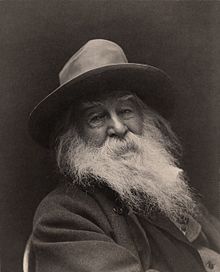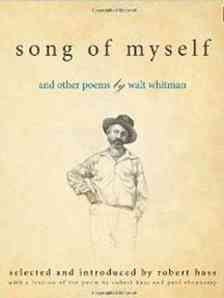As I read “little tree” by e.e. cummings, I developed a picture in my head of a little boy going into the woods and looking for a Christmas tree. I pictured a young boy who felt sympathy for taking this young tree that he took from the forest. He described the tree as a little flower, which made me think that the tree was so small that you couldn’t really use it as a decoration. The little boy seemed to be very proud of the tree and reassured the tree that he would talk care of it and nurture it like a mother would nurture her child. The little boy even seemed excited for him and his sister to sing for the tree. The poem seems to be in a sad, yet upbeat mood.The boy is sympathetic in the poem, but also very excited because he has found a cute little Christmas tree.
 http://www.paperbackswap.com/Little-Tree-E-E-Cummings/book/1902618556/
http://www.paperbackswap.com/Little-Tree-E-E-Cummings/book/1902618556/
According to a website, “little tree” is an ode to a Christmas tree. The speaker is a little boy who talks to the tree as if it is an orphan. The author explains the meaning of the tree being written in the shape of a Christmas tree. The author describes the poem as looking like a “self-contained Christmas card”. The analysis says that the shape of the poem adds to the overall sweetness of the poem helping to show emotion. The boy feels sorry for taking the tree. He feels as if he has snatched the tree from its mother and that the tree is frightened. He sincerely tells the tree that he will comfort it and take care of it. The child promises to make the tree feel better by making it a beautiful decoration inside his home. The boy explains that the tree will get the privilege to let the beautiful decorations shine after they have been in a dark box for over a year. The boy lets the tree know that everyone will appreciate its beauty while its stands in the window for everyone to see. He and his sister are so proud of the tree that they want to sing to it. http://www.humanities360.com/index.php/poetry-analysis-little-tree-by-e-e-cummings-13488/
Here is a short clip of “little tree” being read:
As I researched further to see if there were any thought on the poem, I came across a forum where people commented with what they believed the poem meant. In this forum, one person said that the poem was about a small tree that a family brought home for the holidays. He also mentions that the young child looks at the tree as if it is a fellow creature and has feelings just as he himself does. This person believes that the purpose of this poem was to show what Christmas really represents. Christmas represents compassion and appreciation for others and all that we have. Another person who commented on the forum says that the poem really has no meaning, it is simply there so that the audience can picture all that is happening in the poem. This person says that e.e. cummings is descriptive and helps you to visualize the certain image that he is seeing in his head. http://answers.yahoo.com/question/index?qid=20091206174504AAQggN6
 http://www.ideashomeconcept.com/ideas-christmas-tree-for-children-room-decoration/5-ideas-christmas-tree-for-children-room-decoration-small-christmas-tree-with-animals-ornament/
http://www.ideashomeconcept.com/ideas-christmas-tree-for-children-room-decoration/5-ideas-christmas-tree-for-children-room-decoration-small-christmas-tree-with-animals-ornament/
I believe that this poem could have different meanings to everyone that reads it. I think that it has to do with everyone’s unique holiday tradition. Some family’s go out a find a tree in the forest to use as their tree and others decorate their home with a reusable Christmas tree. This poem shows us very vivid images of how beautiful and innocent a child can be especially at Christmas time. The child felt bad for the tree and felt like they had stolen the tree from its family. It shows us that Christmas is happy time to spend and appreciate your family ad everything that you have been blessed with.
















